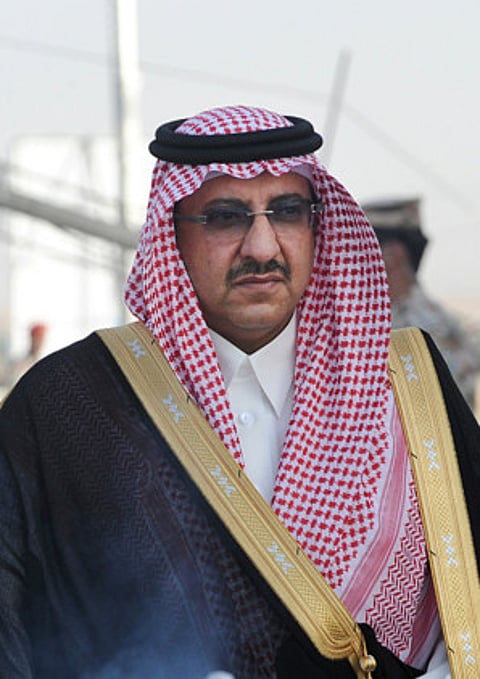Saudi appointment brings next generation to fore
Interior minister’s role critical for ruling Al Saud family

Riyadh: Saudi Arabia appointed Prince Mohammad Bin Nayef as Interior Minister on Monday, marking a significant move towards a new generation of leaders from the kingdom’s ruling family.
Prince Mohammad, a son of the late veteran Interior Minister Prince Nayef, who died in June, is best known as Saudi Arabia’s long-time security chief and has garnered the praise of Western countries for his role in the campaign against Al Qaida.
“This brings forward the promotion of the next generation to the succession,” said Robert Lacey, author of Inside the Kingdom. Prince Mohammad was born in 1959.
The appointment as Interior Minister lifts Prince Mohammad, who was already a deputy interior minister, into a critical role for the ruling Al Saud family and one that has until now only been held by the current ruling generation.
Despite his role in the security hierarchy, analysts say Prince Mohammad is in tune with King Abdullah’s cautious social and economic reforms partly aimed at making Saudi society more open to outside influence.
He replaces his uncle, Prince Ahmad, who was only appointed as Interior Minister in June. “Prince Ahmad is relieved of his position as Interior Minister at his own request and Prince Mohammad Bin Nayef is appointed,” said a royal decree carried on state media.
King Abdullah, the late Prince Nayef, Crown Prince Salman and Prince Ahmad are all sons of Saudi Arabia’s founder King Abdul Aziz, who was known as Ibn Saud. Analysts said the departure of Prince Ahmad meant he was less likely to become king.
Unlike in European monarchies, the Saudi line of succession has so far passed along a line of brothers and is determined within the ruling family who weigh both the seniority and capability of leading candidates.
Beside Prince Mohammad, analysts have pointed to Makkah Governor Prince Khalid Al Faisal, Eastern Province Governor Prince Mohammad Bin Fahd and Saudi Arabian National Guard chief Prince Miteb Bin Abdullah as leading next-generation princes.
“This is an excellent appointment of someone who has been on the frontlines of the campaign against terrorism both within Saudi Arabia and throughout the Middle East,” said Robert Jordan, the former US ambassador to Riyadh from 2001 to 2003.
The Interior Ministry employs more than half a million Saudi Arabians and runs the police, civil defence, domestic intelligence, prisons, the border services and the kingdom’s sophisticated security forces.
“Usually the one who comes next in the succession has to come from a senior job in the system. Now the Interior Ministry role is occupied by a grandson of Ibn Saud. That automatically puts him in a good position when that time comes,” a Saudi analyst who asked to remain anonymous said.



